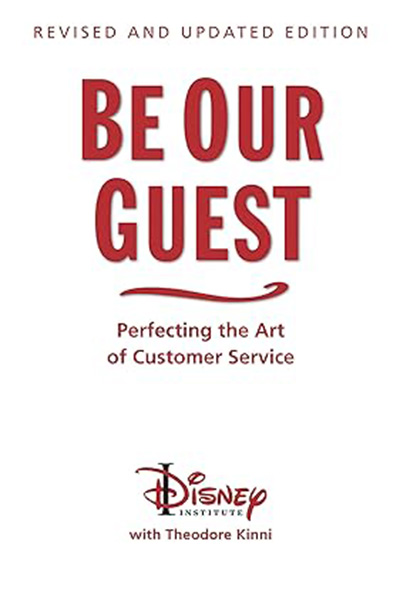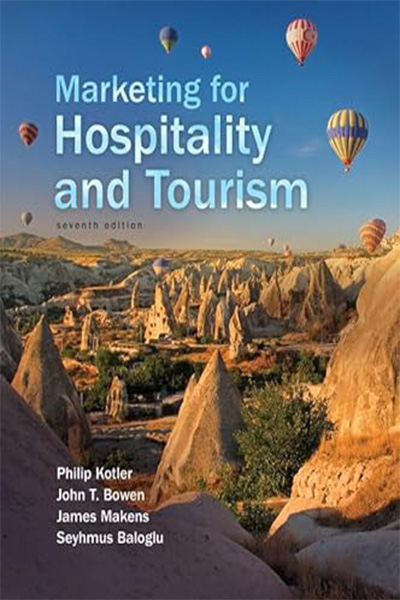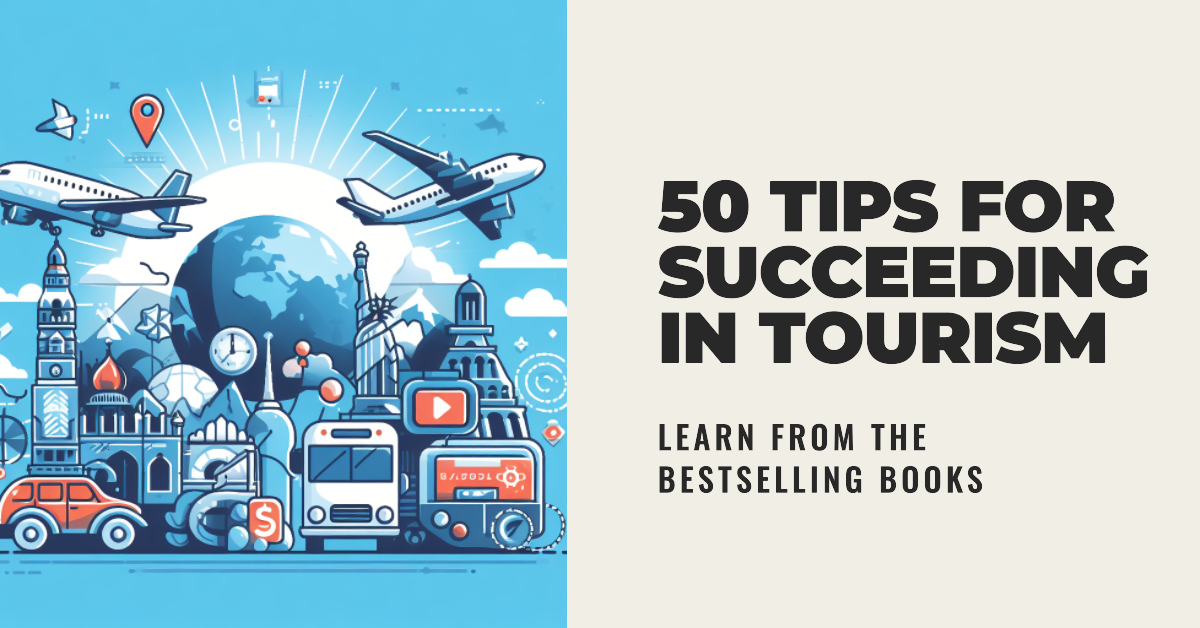Introduction
Travel is more than just a hobby or a passion; it is also a vast and rapidly growing industry that offers numerous opportunities and challenges for entrepreneurs, managers, marketers, and professionals. Whether you aspire to start your own travel business, work in the hospitality sector, or simply enhance your skills and knowledge, there is much to learn from experts who have succeeded in this field.
That’s why we have compiled a list of 50 travel business insights from some of the best books on tourism, hospitality, and travel. These books cover a wide range of topics, including customer service, innovation, marketing, leadership, sustainability, and more. They also feature stories and lessons from some of the most influential and inspiring figures in the travel industry, such as Walt Disney, Danny Meyer, Phil Knight, Sam Zemurray, and others.
By reading these books and applying their insights to your own situation, you will gain a deeper understanding of the travel business and how to excel in it. You will also discover new ideas and strategies that can help you create memorable experiences for your customers and achieve your goals.
So, are you ready to learn from the experts? Let’s dive into the 50 travel business insights from top books
1. Be Our Guest: Perfecting the Art of Customer Service by the Disney Institute

1. Customer-Centric Approach: Disney's unwavering commitment to putting the customer (or "guest") at the center of their operations is a fundamental takeaway. Businesses should prioritize understanding and meeting the needs and expectations of their customers to create lasting relationships and loyalty.
2. Attention to Detail and Branding: Paying meticulous attention to every aspect of the customer experience, from physical surroundings to the behavior of staff, contributes to a strong and consistent brand image. Consistency in branding helps businesses build a strong identity and reputation.
3. Employee Training and Empowerment: Investing in employee training and empowerment is crucial for delivering exceptional customer service. When employees are knowledgeable, confident, and empowered to make decisions, they can better serve customers and contribute to a positive customer experience.
4. Continuous Improvement and Innovation: Businesses should not become complacent and must be open to change and innovation. Disney's ability to adapt and innovate its service offerings and experiences keeps it relevant and appealing to a wide range of customers.
5.Focus on Leadership and Culture: Effective leadership and a positive company culture play a pivotal role in delivering exceptional customer service. Leaders should set the tone, values, and expectations within their organizations to ensure that the customer-centric approach is embraced at all levels.2. Setting the Table: The Transforming Power of Hospitality in Business" by Danny Meyer

6. Hospitality as a Competitive Advantage: Danny Meyer emphasizes that hospitality is a powerful differentiator in the business world. Going beyond just offering products or services, a strong focus on creating exceptional hospitality experiences can set a business apart from its competitors.
7. Customer-Centric Approach: Meyer stresses the importance of genuinely caring for customers and making them feel valued. Taking a customer-centric approach, where you prioritize their needs, preferences, and overall experience, can lead to customer loyalty and positive word-of-mouth.
8. Building Strong Relationships: The book highlights the significance of building strong, long-lasting relationships with both customers and employees. These relationships can foster trust and loyalty, which is essential for the success and growth of any business.
9. Hiring and Training: Meyer emphasizes the importance of hiring and training employees who not only have the necessary skills but also share the company's values and commitment to hospitality. Well-trained and motivated staff are crucial in delivering exceptional service.
10. Adaptability and Innovation: The hospitality industry is dynamic, and Meyer encourages a culture of adaptability and innovation. Businesses should be open to change and continuously seek ways to improve and evolve to meet the ever-changing expectations of their customers.3. Overbooked: The Exploding Business of Travel and Tourism by Elizabeth Becke

11. Economic Impact and Growth: The book highlights the significant economic impact of the travel and tourism industry. It has become one of the world's largest and fastest-growing industries, creating numerous opportunities for businesses across various sectors, from airlines and hotels to tour operators and local businesses.
12. Sustainable Tourism: Becker discusses the importance of sustainable tourism practices. Businesses in the travel industry must recognize the impact of tourism on the environment and local communities. Implementing sustainable and responsible practices can help preserve destinations and appeal to conscientious travelers.
13. Government Regulations: The travel and tourism industry is highly regulated, and businesses need to be aware of government policies and regulations that can affect their operations. Understanding the legal framework and staying compliant is crucial for success in this industry.
14. Changing Consumer Behavior: Becker explores how consumer behavior in travel and tourism has evolved with advancements in technology and changing demographics. Businesses need to adapt to the shifting preferences of travelers, including the demand for customized experiences, online booking platforms, and digital marketing strategies.
15. Competitive Landscape: The book underscores the intense competition within the travel and tourism industry. Businesses must continually innovate and find ways to differentiate themselves to attract travelers. Building strong brands, offering unique experiences, and delivering exceptional customer service are key strategies for success.4. How to be a Tour Guide: The Essential Training Manual for Tour Managers and Tour Guides by by Nick Manning

16. Professional Training and Development: The book emphasizes the importance of professional training and development for tour guides. Investing in education and acquiring relevant skills is essential for delivering high-quality guided tours and building a successful career in the industry.
17. Customer Service Skills: Exceptional customer service is a critical component of tour guiding. Developing strong interpersonal and communication skills, such as active listening and problem-solving, is essential for creating memorable experiences and ensuring customer satisfaction.
18. Safety and Risk Management: The safety and well-being of your clients should be a top priority. Understand and implement safety protocols and risk management strategies to ensure the security of your tour participants. This also helps in building trust and a good reputation in the industry.
19. Storytelling and Engagement: Engaging storytelling can bring destinations and history to life. Learn how to captivate your audience through storytelling techniques, using anecdotes, humor, and local insights to make the tour experience both educational and enjoyable.
20. Business Management and Marketing: Successful tour guides should also have a good grasp of business management and marketing. This includes understanding pricing strategies, tour development, and marketing techniques to attract and retain clients. Building a strong online presence and customer feedback mechanisms can also be beneficial for your business.5. The Professional Chef by The Culinary Institute of America

21. Mastery through Education and Training: Just as chefs undergo rigorous training and education to become professionals, businesses can benefit from investing in continuous learning and skill development for their employees. Training and education can lead to expertise, efficiency, and improved performance.
22. Quality and Consistency: The book underscores the importance of delivering consistent, high-quality products and services in the culinary world. In the business world, maintaining a focus on quality and consistency can help build a strong reputation and customer loyalty.
23. Organization and Efficiency: The culinary industry places a premium on organization and efficiency in the kitchen. These principles are transferable to any business where streamlined processes and effective time management are critical to success.
24. Creativity and Innovation: The art of cooking involves creativity and innovation, which can be applied to the development of new products, services, and problem-solving in various industries. Encouraging a culture of innovation can help businesses stay competitive and relevant
25. Teamwork and Leadership: Effective teamwork and leadership are essential in a professional kitchen, just as they are in the corporate world. Building strong teams, fostering collaboration, and providing leadership can lead to increased productivity and a positive work environment.6. Heads in Beds: A Reckless Memoir of Hotels, Hustles, and So-Called Hospitality

26. Customer Service is Paramount: The book emphasizes the crucial role of exceptional customer service in the hospitality industry. A satisfied guest is more likely to become a repeat customer and recommend the establishment to others. Providing a high level of service and personalized experiences is key.
27. The Importance of Reputation Management: Tomsky highlights how the reputation of a hotel or hospitality business can be a make-or-break factor in the industry. Online reviews and word-of-mouth recommendations play a significant role in influencing potential guests, making reputation management a priority.
28. Staff Training and Empowerment: The book underscores the importance of training and empowering hotel staff. Well-trained and motivated employees are more likely to provide outstanding service, handle difficult situations effectively, and contribute positively to the guest experience.
29. Revenue Management and Pricing Strategy: "Heads in Beds" delves into the strategies hotels use to optimize revenue, such as dynamic pricing and yield management. Understanding pricing strategies and demand forecasting is critical for maximizing profitability in the hospitality sector.
30. Behind-the-Scenes Insights: The book provides readers with a behind-the-scenes look at the hotel industry, shedding light on aspects that guests don't typically see. This perspective can help business owners and managers gain a deeper understanding of the challenges and opportunities in the industry.7. The Airbnb Story: How Three Ordinary Guys Disrupted an Industry, Made Billions . . . and Created Plenty of Controversy" by Leigh Gallagher.

31. Disruption Through Innovation: Airbnb's success demonstrates the power of innovative disruption. By offering a platform that allowed individuals to share their homes with travelers, they challenged the traditional hotel industry. This takeaway highlights the potential for innovative ideas to transform established industries.
32. Platform and Community Building: Airbnb's focus on building a two-sided platform and fostering a sense of community among hosts and guests was crucial. Businesses can learn the importance of creating a user-friendly platform and facilitating interactions to build a loyal user base.
33. Adaptability and Growth: The book shows how Airbnb adapted and expanded its offerings beyond just lodging, incorporating experiences and business travel. This adaptability allowed them to capture a wider market share and diversify their revenue streams, illustrating the importance of being open to growth opportunities.
34. Navigating Regulatory Challenges: Airbnb faced numerous regulatory challenges as it disrupted traditional lodging markets. The book highlights the importance of understanding and navigating regulatory landscapes in different regions and working with stakeholders to find solutions.
35. Customer Trust and Safety: Building trust and ensuring safety for both hosts and guests was a priority for Airbnb. This takeaway underscores the significance of prioritizing trust, security, and transparency to build a strong brand and gain the trust of customers in the sharing economy.8. Marketing for Hospitality and Tourism by Philip Kotler, John Bowen, James Makens, and Seyhmus Baloglu.

36. Customer-Centric Marketing: The book emphasizes the importance of adopting a customer-centric approach in the hospitality and tourism industry. Understanding and meeting the unique needs and preferences of guests is crucial for building strong customer relationships and loyalty.
37. Service Quality and Experience: Providing high-quality service and creating memorable guest experiences are central to the success of businesses in this industry. The book explores how service excellence can lead to customer satisfaction, positive reviews, and repeat business.
38. Market Segmentation and Targeting: Effective marketing in the hospitality and tourism sector involves segmenting the market to identify specific customer groups and targeting them with tailored marketing strategies. Understanding different customer segments allows businesses to address their diverse needs and preferences.
39. Digital Marketing and Online Presence: In today's digital age, the book highlights the significance of a strong online presence and effective digital marketing strategies. Leveraging websites, social media, and online booking platforms is essential for attracting and engaging potential guests.
40. Sustainability and Ethical Marketing: Sustainability and ethical considerations are increasingly important in the hospitality and tourism industry. The book discusses how responsible marketing and environmentally conscious practices can be a competitive advantage, especially as consumers become more eco-conscious.9. Tourism: Principles, Practices, Philosophies" by Charles R. Goeldner and J. R. Brent Ritchie .

41. Sustainable Tourism: The book emphasizes the importance of sustainable tourism practices. Sustainable tourism not only benefits the environment but also makes good business sense. It's essential for businesses in the tourism industry to consider their environmental and social impact.
42. Marketing and Promotion: Effective marketing and promotion strategies are critical in the tourism industry. The book delves into the principles and practices of marketing tourism products and services, highlighting the need for a targeted and strategic approach to attract travelers.
43. Destination Management: Managing tourist destinations requires careful planning, infrastructure development, and community engagement. The book discusses the principles and practices of destination management, focusing on how to create an attractive and well-maintained destination.
44. Quality Service and Customer Satisfaction: Providing quality service is at the heart of successful tourism businesses. The book covers the importance of customer satisfaction and service quality, which can lead to repeat business and positive word-of-mouth.
45. Global Perspective: In today's globalized world, understanding international tourism trends and issues is vital. The book provides insights into the global aspects of the tourism industry, highlighting the opportunities and challenges of operating in a diverse and interconnected market.10. Unreasonable Hospitality: The Remarkable Power of Giving People More than They Expect by Will Guidara.

46. Exceeding Customer Expectations: Guidara emphasizes the importance of consistently delivering more than what customers expect. By surprising and delighting customers with exceptional service and experiences, businesses can create loyal customers and generate positive word-of-mouth.
47. Personalization and Customization: The book highlights the value of personalizing and customizing the customer experience. Understanding individual preferences and tailoring service to meet specific needs can lead to stronger connections with customers and increased customer satisfaction.
48. Empowering Employees: Guidara discusses the significance of empowering and trusting employees to make decisions that benefit the customer. When employees have the authority to go the extra mile to satisfy customers, it can result in memorable experiences and increased customer loyalty.
49. Creating Emotional Connections: The book explores the idea that great hospitality is not just about transactions but about creating emotional connections with customers. Building genuine relationships and making customers feel valued can lead to long-term success.
50. Building a Culture of Excellence: The author emphasizes the importance of instilling a culture of excellence within the organization. This culture starts at the top and trickles down to all employees, ensuring that every team member is committed to delivering exceptional service.



